Speakers
H.E. Captain Thammanat Phromphao
Minister of Agriculture and Cooperatives, Government of Thailand
H.E. Captain Thammanat Phromphao is the Minister of Agriculture and Cooperatives in the Government of Thailand since September 2023. Capt. Thammanat completed his Master’s in political science from the Faculty of Political Science, Ramkhamhaeng University, Thailand. He had his early education at the 25th Armed Forces Academies Preparatory School and the 36th Chulachomklao Royal Military Academy. He also served as the Secretary-General of Palang Pracharath Party (July 2023) and Deputy Minister of Agriculture and Cooperatives Thailand from 2019 to 2021.

H.E. Dr. Suwit Khunkitti
Former Deputy Prime Minister of Thailand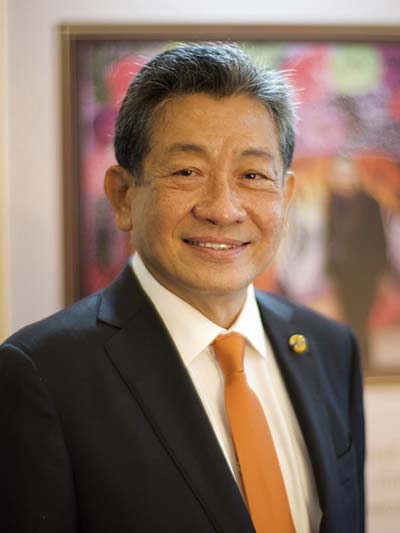
H.E. Dr. Suwit Khunkitti has an extensive base of experience and achievement spanning government, business, and social enterprises. Ha has a long and accomplished public service, and is presently working with several Asian investment groups to identify and manage investments in growth industries, including life sciences, management of water resources, sustainability, and information technology. He is also involved with various social ventures and serves as an advisor to several government bodies and major business corporations.
Dr. Khunkitti holds a Doctor of Philosophy from the University of Technology Sydney, and honorary doctorates in Community Development, Public Administration, and Developmental Science. Between 1983 and 2011 he served as a Member of Parliament and of The Government of Thailand. He has also served as Chairman of various National Committees including the National Committee on Environment, the National Water Resources Committee, the National Research Council, the National Science and Technology Development Council, the National Education Council, the National Information Communication Technology Committee, and the Thailand Board of Investment.
Over this period, his portfolios included:
- Deputy Prime Minister of Thailand (6 times),
- Minister of Justice,
- Minister of Agriculture and Cooperatives,
- Minister of Science, Technology and Environment,
- Minister of Natural Resources and Environment (2 times),
- Minister of Information and Communication Technology,
- Minister of Education,
- Minister of Industry,
- Deputy Secretary General to the Prime Minister,
- Parliamentary Secretary of Ministry of Commerce, University Affairs & Foreign Affairs,
- Chair of the House of Representatives Standing Committee on Women & Youth Affairs
Between 1999 and 2000, Dr Khunkitti was the Chairman of Thailand’s Social Action Party. He served as the Founding Chair of the APEC Life Sciences Innovation Forum from 2003-2013. Amongst his achievements in this role, he led the establishment of the Thailand Centre of Excellence for Life Sciences. In 1987, he was the first Thai and the youngest Member of Parliament ever elected as the Executive Member of the Inter-Parliamentary Union, the Global Organization of 179 National Parliaments.
In 2001, has initiated the world’s largest microcredit system, founding Thailand’s Village and Urban Community Fund. The fund’s assets have reached US$7.4 billion, with 12.8 million members from 79,255 villages and urban communities.
In 2009, Dr. Khunkitti was awarded the J. Paul Getty Award for Conservation Leadership by the World Wildlife Fund in recognition for his work on natural resources and environmental conservation efforts in Thailand and globally. Ronald Reagan, President of United States of America, referred to the Getty Award as the "Nobel Prize for conservation." In 2019, Dr. Khunkitti serves as the Present, Chairman of the Board of Directors of Anthrocell Pty Ltd, an Australian Biotechnology Company. Since 2020 he has also been serving as the Vice Chair of Board of Trustees of Asia Institute of Technology (AIT), Thailand.

Kazuo Yamamoto
President, Asian Institute of Technology (AIT), Thailand
Professor Yamamoto has served AIT in various capacities starting as a former Japanese seconded faculty, and also as the AIT Vice President for Resource Development and Vice President for Administration on a joint appointment with the University of Tokyo. He is an Emeritus Professor at the University of Tokyo, Professor for Research and Development Initiative at Chuo University, Visiting Professor at Kindai University, and is currently serving as the President of the Zosui (Water Reuse) Promotion Center in Japan and Audit & Supervisory Board Member of IDEA Consultants Inc. Professor Yamamoto was awarded the prestigious Lee Kuan Yew Water Prize 2020 for his pioneering work in developing the submerged membrane bioreactor (MBR). He has authored and co-authored 20 books and more than 130 scientific publications and was conferred 12 awards from international institutions including the European Desalination Society, the Japan Society on Water Environment, and the International Water Association, primarily for his notable invention of the world’s first operationally viable submerged membrane bioreactor (MBR).

Patrick Sorgeloos
Emeritus Professor, Ghent University, Belgium
Patrick Sorgeloos has a PhD in marine biology and set up the Laboratory of Aquaculture & Artemia Reference Center at Ghent University in Belgium. Until his retirement as emeritus professor in 2013 over 350 Master (from > 50 countries) and 70 PhD alumni (from > 20 countries) graduated at Ghent University in the field of aquaculture. As Past-President of the World Aquaculture Society (WAS) and co-founder and board member of the European Aquaculture Technology & Innovation Platform EATIP, Patrick is a strong promoter of international networking in aquaculture and is still involved with many international aquaculture organizations. He was co-founder of the Ghent University spin off company Artemia Systems which is now operating under the name of INVE Aquaculture and belongs to Benchmark Holding. He received honorary awards in China, Egypt, Greece, India, Malaysia, Russia, Thailand, USA, and Vietnam.

Sampan Panjarat
Director of Fisheries Policy and Planning Division, Department of Fisheries, Thailand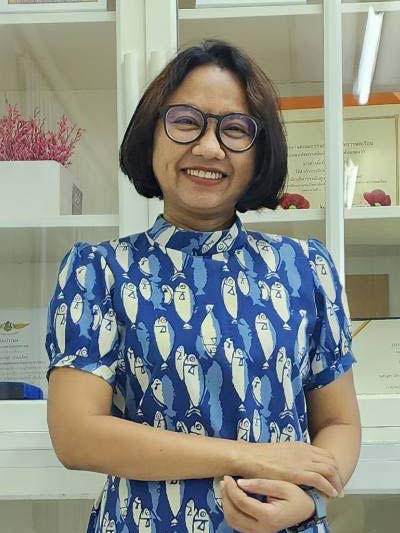
Sampan Panjarat holds B.Sc. (1996) in Aquatic Science from Prince of Songkla University, Thailand and MSc (2011) from the Faculty of Natural Resources Management, the Asian Institute of Technology. In 2007, she completed the fellowship program of advanced academic research, study and training on Ocean Affairs and the Law of the Sea at the University of Rhode Island (URI) and at the Department of the Law of the Sea (DAOLOS), the United Nations Headquarter New York, USA.
She was involved on the Agreement for the Implementation of the Provisions of the United Nations Convention on the Law of the Sea of 10 December 1982 relating to the Conservation and Management of Straddling Fish Stocks and Highly Migratory Fish Stocks. She had been nominated to the delegation of Thailand to the Indian Ocean Tuna commission (IOTC) and Southern Indian Fisheries Agreement, the key Regional Fisheries Management Organizations (RFMOs) in Indian Ocean that Thailand is a member and during 2019-2020. She is also one of the SIOFA Collective Chairpersons.
Professionally, she has more than 20 years of experience in working with Department of Fisheries, Thailand, since 1998. She started her endeavor from the marine fisheries biologist, chief of the Oversea Fisheries and Transshipment Control Division, Director of Fisheries Resources Management and Measures Determination Division. And presently, she is the Director of Fisheries Policy and Planning Division, Department of Fisheries.

David Little
Professor, University of Stirling, UK
David Little is currently the Chair of Aquatic Resource Development1 and Deputy Director at the
Institute of Aquaculture, University of Stirling. He has more than 40 years professional experience in
the sector. Research and educational interests focus around the societal impacts of aquaculture and,
increasingly, highlighting the importance of seafood in food systems. He has developed and
coordinated a wide range of research, both externally funded and through postgraduate research
with a focus on Asia and Africa. He is active in post-doctoral student mentorship beyond his own
group of students playing an active role on EU and UK based progammes. He has published widely
on the interface between aquatic food production, broader natural resource management and
development and been a vocal advocate and practitioner of interdisciplinary systems research. He
was an academic lead in the Blue Foods Assessment and is currently leading a research programme
on improving aquatic animal welfare in Asia.
https://www.susaquastirling.net/
https://www.researchgate.net/profile/David_Little
https://www.bluefood.earth/

Krishna R Salin
Chair, AARM, AIT, IFS 2023 & GIANT PRAWN 2023
Krishna R. Salin is the Chair of AIT’s Aquaculture and Aquatic Resources Management Program, coordinating and supervising aquaculture research and education at AIT. He is the President of the World Aquaculture Society Asian-Pacific Chapter (WAS-APC) and Honorary Director of the intergovernmental Network for the Development of Agricultural Cooperatives in Asia and the Pacific (NEDAC), Bangkok. Dr. Salin is also a Visiting Professor at Shanghai Ocean University in China and an Associate Editor for the Elsevier journal, Aquaculture Reports. His research involves the development of cleaner aquaculture systems, innovative hatchery and farming techniques for giant freshwater prawn and marine shrimp, and climate-smart seafood production and consumption. Besides, he offers customized training programs and consulting services to governments, researchers, and businesses worldwide, based on the AIT's Sustainable Asian Aquaculture platform.

Prapan Leepayakhun
Deputy Director General, Dept. of Fisheries, Thailand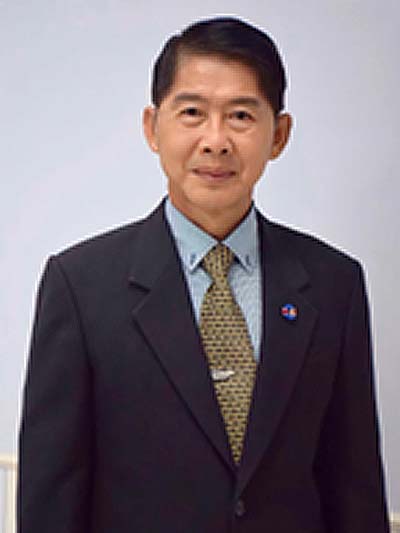
Mr. Prapan Leepayakhun currently serves as the Deputy Director-General of the Department of Fisheries, Ministry of Agriculture and Cooperatives since 2022. He holds a Bachelor's degree in Fisheries, specializing in Aquaculture, from Kasetsart University, and a Bachelor of Laws from Sukhothai Thammathirat University. He pursued furthered studies in business, earning a Master of Business Administration from Burapha Business School, Burapha University.
He joined the government sector in Department of Fisheries in 1983. From 2013 to 2019, he served as the Director of the Provincial Fisheries Office in several provinces, including Mukdahan, Nonthaburi, Satun, and Phetchaburi. Prior to assuming his current role as Deputy Director-General in 2022, he also served as an Inspector General of the Department of Fisheries from 2020 to 2021

Mohd Effendy Abd Wahid
Chairman, ASEAN-FEN and Dean, Faculty of Fisheries and Food Science, Universiti Malaysia Terengganu, Malaysia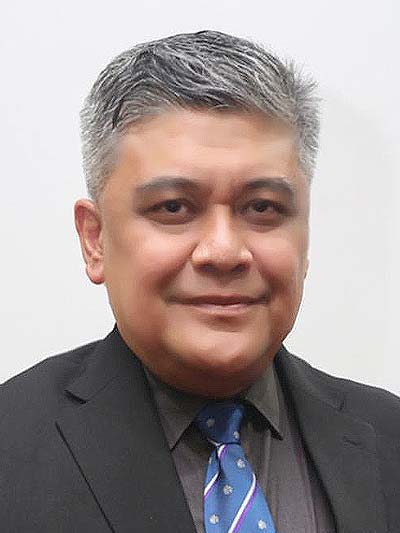
Prof Ts Dr Mohd Effendy Abd Wahid FASc, FAPM, is currently the Chairman of ASEAN-FEN. He is also the Dean of the Faculty of Fisheries and Food Science at Universiti Malaysia Terengganu. He obtained his first degree in Doctor Veterinary Medicine from UPM in 1994. He then pursued a PhD in Veterinary Immunopathology and completed postgraduate study in 1998. Following that, he was appointed as a post-doctoral fellow in the Faculty of Veterinary Medicine at Chonnam National University in Gwangju, South Korea. He was the founding Director of the Institute of Marine Biotechnology from 2005 to 2012. He was appointed Assistant Vice Chancellor for Research and Innovation in 2012 before being appointed the first Deputy Vice Chancellor of Research and Innovation at UMT from 2013-2016. He has been a Visiting Professor at South Brittany Univerity, Vannes in France. He has been the Dean of the Faculty of Fisheries and Food Science since 2019 and was appointed as the Chairman of the Asean-Fisheries Education Network (Asean-FEN) in 2022. He served as the Editor-in-Chief for the UMTJUR journal (MyCite) and Editorial Board member of the Pertanika Journal of Tropical Agricultural Science (JTAS), UPM, from 2022 until 2024. He was awarded an Academy Science Malaysia Fellowship and a Fellow of Malaysia Academy Professor in 2022. As a veterinarian by training, he believes that future protein will come from aquatic resources since the ocean represents about 71% of the earth's surface. The vast resources provide massive potential in producing aquatic proteins compared to terrestrial animals.

Yeong Yik Sung
Director of the Institute of Marine Biotechnology (ICAMB), Universiti Malaysia Terengganu (UMT), Malaysia
Dr. Yeong Yik Sung is a Professor at Universiti Malaysia Terengganu (UMT) and the Director of the Institute of Marine Biotechnology (ICAMB). He received his doctorate from Ghent University in Belgium in 2008. He currently serves as a secretary to the ASEAN Fisheries Education Network (ASEAN-FEN), a long-standing network of university-based consortia representing Southeast Asia's fisheries and aquaculture-oriented institutions and chairs the International Artemia Aquaculture Consortium (IAAC), hosted by NACA. His research focuses on developing novel methods to mass produce brine shrimp Artemia biomass and cysts in Malaysia, as well as investigating the relationship between Hsps, pathogen resistance, and the immune system in aquatic animals, employing both novel and established molecular approaches to investigate their intricate integration. He has published over 130 articles in international peer-reviewed journals to date, with an H-index of 21 (SCOPUS). He is a visiting professor at several Chinese and Indonesian universities, and he currently serves on grant review panels in Malaysia, China, and Indonesia. International grants include those from the European Commission's Horizon 2020 program, China's Belt and Road Initiatives and 1000-Plan Young Talent Professors Scheme, Virbac International (France), IDRC (Canada), Worldfish, and others

Andy Shinn
Global Technical Expert (Health), INVE Aquaculture, Thailand
Prof Andy Shinn is a Global Technical Expert with INVE/Benchmark and has more than 30 years of experience in aquatic parasitology and animal health. He is passionate about aquatic animal health, especially parasites. His work focuses on disease diagnostics, biosecurity, welfare, and health management and disease control through a suite of chemical and non-chemical measures.

Olivier Decamp
R&D and Business Development Director, INVE Aquaculture, Belgium
Olivier Decamp holds a biology degree from the University of Namur (Belgium) and a PhD in Zoology from the University of Leicester (UK). With over 20 years of experience in aquaculture, he has specialized in intensive shrimp farming and has worked in various regions such as Asia and the Americas. Olivier had held positions at The Natural History Museum in London (UK), research laboratories in Hiroshima (Japan), The Oceanic Institute in Hawaii (USA), INVE Aquaculture, part of Benchmark Group and Grobest Holding before returning to INVE Aquaculture as the R&D and Business Development Director.

Manoj Sharma
Mayank Aquaculture, Gujarat, India
Manoj Sharma is a MFSc Fisheries graduate and a doctorate (PhD) in fisheries. In 1994, for the first time, he developed four shrimp ponds in the salt affected wasteland (Khar land) of Olpad, Gujarat, India. Gradually the four ponds turned into more than 6000 ponds in Gujarat which provided a source of livelihood opportunities to 1.5 lakh of coastal fishermen and rural people from the Salt affected Wasteland (Khar Land) by turning it into productive land. Dr Manoj Sharma’s work converted this salt-affected wasteland into best productive land. One hectare of salt affected wasteland started producing shrimps worth 4 to 5 lakh INR per annum. Today, the shrimp farming industry in Gujarat produces shrimps worth 2000 crore per annum. His work promoted reverse migration as the rural people seeking jobs in the urban cities. One hectare of shrimp farming land provides employment to around 15 people. His work has given employment to more than 10,000 Odisha tribal community in South Gujarat, transforming the livelihood and socioeconomic status of thousands of people in South Gujarat and made them “Aatma Nirbhar” (Self-reliant). His work has been widely recognized and acknowledged. Dr Manoj has received national award by National Fisheries Development Board for Best Shrimp farmer and many national and international awards.

Soraphat Panakorn
Shrimp Culture Specialist at Novozymes, Thailand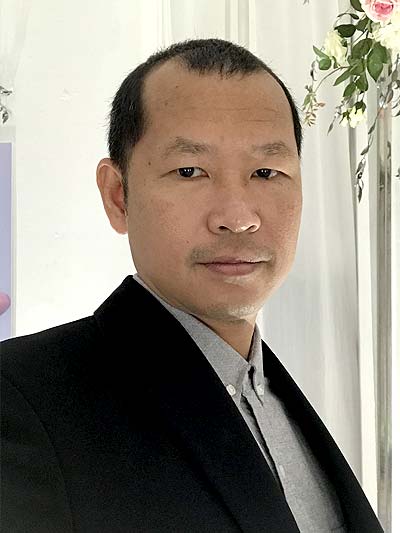
Mr. Soraphat Panakorn (Danny), a graduate from Prince of Songkla University, Thailand, is a shrimp culture specialist with nearly 27 years of experience. He served as a technical consultant to several national and international projects with his practical experience in the most efficient utilization of inputs in shrimp farming, particularly troubleshooting in complex farming situations. He is a former Vice President of the Thai Aquaculture Business Association and a former Secretary of the Thai Shrimp Farmers Federation. Currently, he is working with the Thai Shrimp Network, Thai DoF PR Team, and Southern Thai Shrimp Club, and serves as a freelance columnist in Aquaculture Asia Pacific Magazine, writing about practical shrimp farm management suitable for Asia.

Krishnan P
Director, Bay of Bengal Program (BOBP)-IGO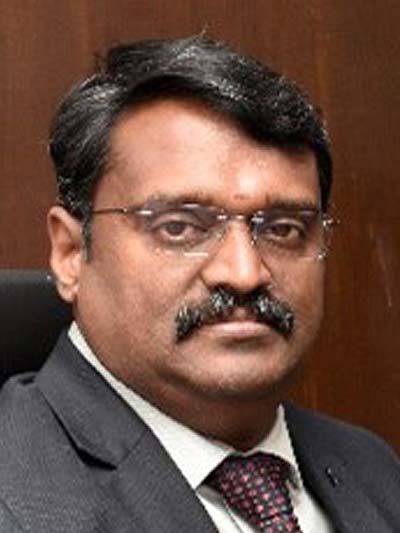
Dr. P. Krishnan is a fisheries expert by training. He served as a scientist for over 20 years in different research organizations under the Indian Council of Agricultural Research (ICAR) under Government of India. Dr. P. Krishnan has undertaken over 30 multi-institutional and trans-disciplinary R&D projects with funding from national and international agencies. He has published over 100 research papers in peer reviewed journals, 15+ books and 15+ policy papers on diverse subjects viz., fisheries resource management, coastal zone management, biodiversity and ecosystem conservation, environmental law, policy and governance and developed six IT applications for evidence-based decision making in various fields. Dr. Krishnan is a distinguished Fellow of the National Academy of Agricultural Sciences (NAAS), New Delhi and is a recipient of many national awards for his outstanding contributions in fisheries science. Dr. Krishnan is currently the Director of Bay of Bengal Inter Governmental Organization (BOBP-IGO), a regional fisheries body with Bangladesh, India, Sri Lanka and Maldives as members. https://bobpigo.org/pages/view/director-bobp.

Jean-Michel Mortillaro
Scientist, Cirad, Montpellier, France
Jean-Michel Mortillaro is a scientist from the Institute of Evolution Science of Montpellier (ISEM-Cirad). His research activities are focused on the evaluation and design of integrated aquaculture systems following ecological principles (e.g., food web, species assemblage, nutrient flows), with a view to optimizing their productivity. His study model focuses on aquaculture systems integrated with agriculture such as rice-fish farming.

Ravishankar C N
Director & Vice Chancellor, ICAR Central Institute of Fisheries Education (CIFE), India
Ravishankar, C.N is presently working as Director and Vice Chancellor of ICAR-Central Institute of Fisheries Education, under ICAR, Ministry of Agriculture and Farmers Welfare, Govt. of India. Earlier to this he was the Director of ICAR-Central Institute of Fisheries Technology Cochin during 2014-21. He has over 35 years of experience in food science research, post-harvest fisheries technologies, food safety, technology commercialization and business incubation. Handled many International and National Research projects and has participated in the First Indian Antarctic Expedition. Successfully established India’s first Fisheries Business Incubation Centre and supported more than 65 entrepreneurs in setting up new business ventures. Published 180 research papers in peer reviewed journals, 78 book chapters, 54 technical articles, authored/edited 11 books; Guided 8 PhD and 30 for masters students. He is the Fellow of NAAS, AFSTI, SOFTI and KSTA and received many awards for his contribution in the field of Fisheries Harvest and Post-Harvest technologies. He has served as member of important committees in many Governmental organisations like ICAR, NABL, FSSAI, BIS, LDCL, DFRL, DBT, MoFPI, MPEDA and acted as consultant to many international and national organisations.

Do Vu Linh
Program Manager, Seafood Watch Vietnam
Mr. Do Vu Linh has about 15 years of experience in the seafood industry. He has worked for various organizations in the seafood supply chain, especially in shrimp supply chain, collaborating with public and private sectors, national and international companies. He has diverse expertise in shrimp farming, processing, R&D, quality management, inspection, sourcing, and value chain development. He spends most of his time working closely with farmers, processors, government, and stakeholders towards a more sustainable seafood supply chain. Growing up and living in his hometown, Ca Mau province – the capital of Vietnam seafood industry, his study focuses on bioprocessing and food innovation with a BSc in Biotechnology from Can Tho University and an MSc in Food Technology from Wageningen University and Research Center.

Rohit Pingale
GalaxEye Pvt. Ltd., India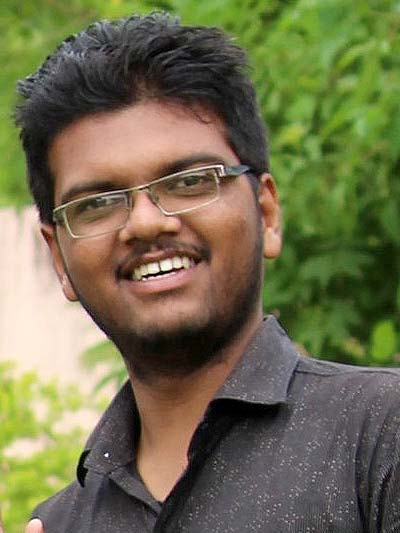
Working as geospatial analyst with expertise in space and satellite-based applications in GalaxEye pvt. Ltd. Holds an M.Tech in Geo-informatics from IIT Bombay-2023. Skilled in leveraging satellite data for insightful spatial analysis. Committed to advancing the field through innovative solutions in the space technology field.

Romain Menard
Technical Manager, Veolia, Hong Kong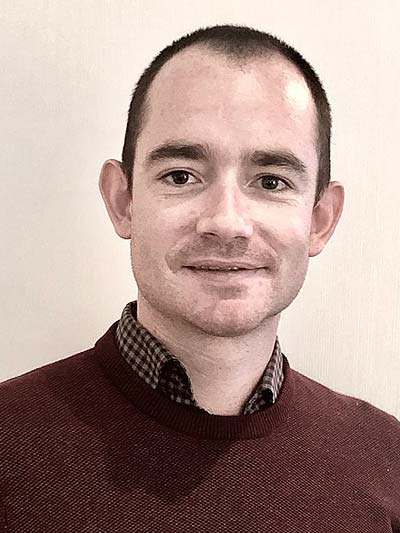
Romain Menard is the technical manager in charge of bioconversion solutions for Veolia.
Bioconversion being the up cycling of organic byproduct in functional ingredients for animal feed via the use of Black Soldier flies.
Based in Hong Kong he oversaw the construction, commissioning and technical validation of the first industrial facility of the group in Malaysia producing 3000 tons of insect products per year, and is now assisting other geographies for veolia in their journey to develop similar projects, from feedstock sourcing to technical solutions.

Piet Verstraete
Managing Director 4SEA Consulting Ltd., Thailand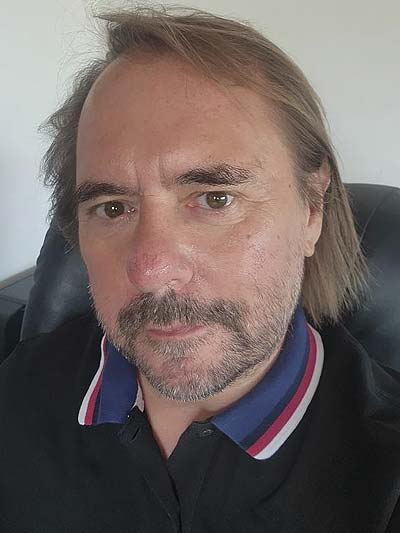
Piet Verstraete is the Managing Director of 4SEA Consulting.Ltd. since 2006. He has been active in the aqua industry for more than 25 years and serviced customers all over the world. Piet and his team at 4SEA provide nutrition related services to the aquaculture and pet food industry in Asia Pacific, and the Mediterranean; mainly for feed mills, additive- and ingredient companies. 4Sea’s goal is to “improve the profitability and sustainability of companies active in the aqua- and pet food industry.” 4SEA has developed numerous new feeds and premixes for a variety of species and all culture stages based on thorough knowledge about ingredients, nutrition and formulation. 4SEA has managed projects as diverse as building new feed plants, executing sourcing missions and plant audits, organizing research and field trials, setting up quality assurance systems and supporting the market introduction of additives and novel ingredients. As part of the consultancy services, Piet held several management positions for customers. Prior to 4SEA, Piet was at Aqualma and Unima Group to develop their specific feed program for domesticated fast growing monodon shrimp and he designed, built and managed their state of the art feed plant.
At the start of his career, Piet held several positions at the INVE Group; including technical manager, product manager and business unit manager for farms and feed-mills. Piet has a master degree in International Business Administration (MBA), a bachelor and master degree in Bio Engineering -with specialization in Aquaculture- and followed numerous specialization courses in feed processing and (aquatic) animal nutrition.

IFS2023
"Building Sustainable Fisheries and Aquaculture for Future Generations"
Aquaculture & Aquatic Resources Management (AARM),
Asian Institute of Technology (AIT),
Bangkok,
Thailand
aarm@ait.ac.th